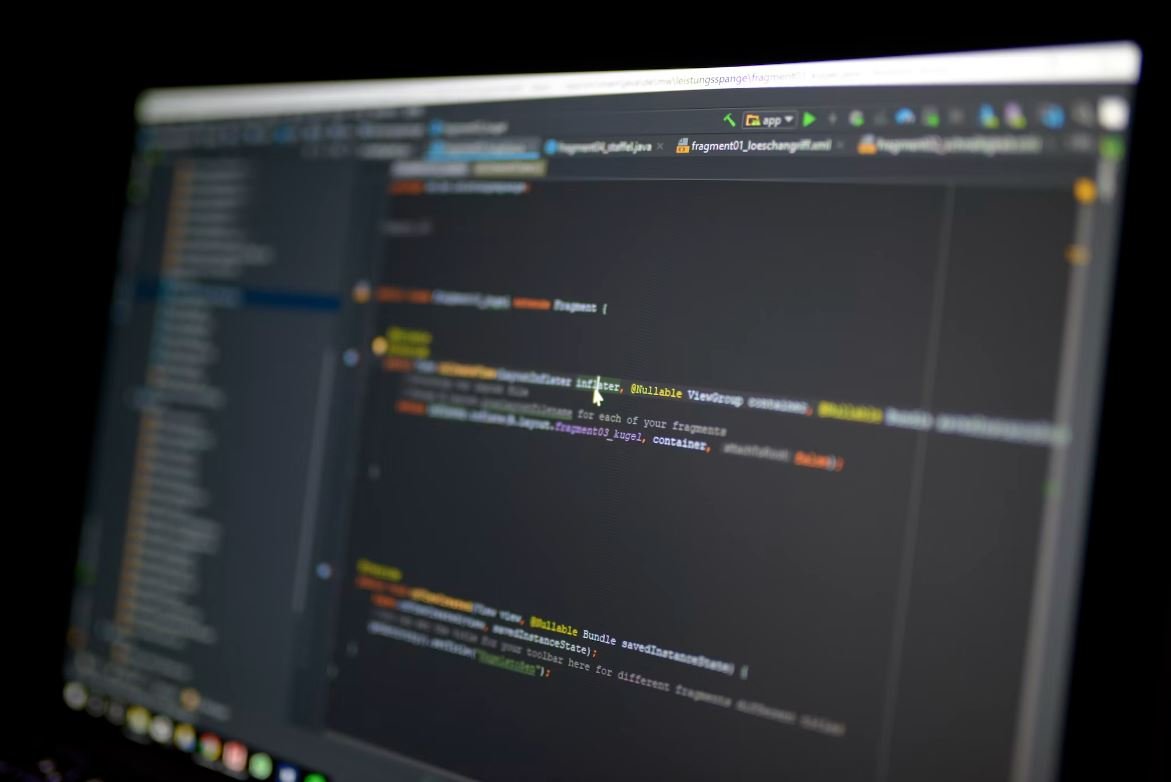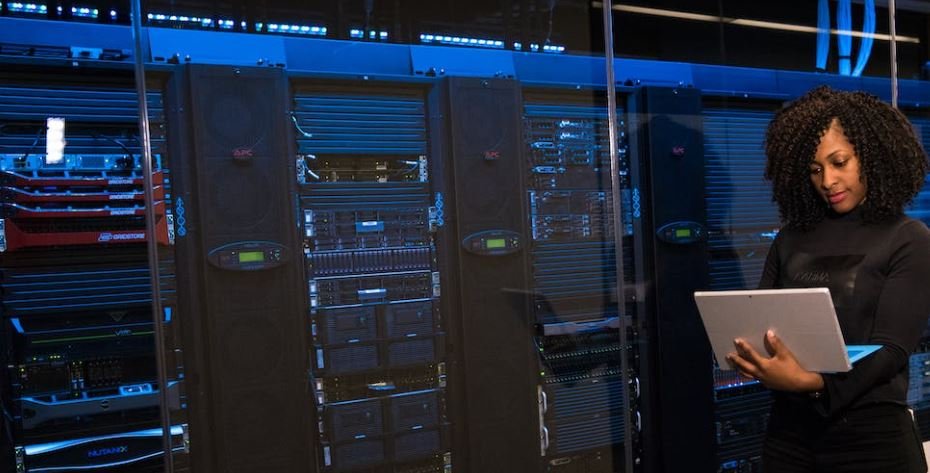AI for Game Production
In recent years, artificial intelligence (AI) has made significant advancements and has become increasingly prevalent in various industries. One such industry is game production, where AI technologies are being utilized to enhance the gaming experience for both developers and players. By automating certain processes, optimizing performance, and creating more immersive gameplay, AI is revolutionizing the way games are created and played.
Key Takeaways:
- AI is increasingly being used in game production to automate processes and enhance gameplay.
- It can optimize performance, create realistic graphics, and improve player experiences.
- AI can assist in game testing and quality assurance, reducing development time and costs.
**Artificial intelligence** has the potential to transform the game production process, making it more efficient and dynamic. By **automating** various aspects of development, developers can focus more on creative tasks, such as storytelling and character design, while AI takes care of repetitive tasks like bug fixing and asset generation.
One area where AI has already made significant advancements is in **graphics rendering**. Generating realistic graphics in games can be a time-consuming and computationally intensive process. AI algorithms, such as **neural networks**, can analyze images and learn to generate lifelike textures, lighting effects, and animations. This not only saves developers time but also enhances the visual quality of games.
Another way AI is revolutionizing game production is through **gameplay optimization**. AI technologies can analyze player behavior, preferences, and interactions to dynamically adjust the difficulty level of the game. This ensures that the game remains challenging and engaging for each individual player, creating a more personalized experience.
*AI-enhanced games** can also provide a more **immersive** experience. By incorporating AI, games can have **real-time adaptive narratives** that respond to player choices and actions. This makes the game world more interactive and responsive, giving players a sense of agency and immersion.
Automating Game Testing and Quality Assurance
Testing and quality assurance are crucial steps in game development to ensure a smooth and bug-free gaming experience. However, these processes can be time-consuming and expensive. AI-powered testing and quality assurance tools can significantly streamline these processes.
**AI algorithms** can simulate various scenarios and test the game for potential bugs, glitches, or performance issues. This saves developers the time and effort of manual testing, allowing them to identify and address issues more quickly. Additionally, AI can generate automated reports with detailed information about any identified problems, making it easier for developers to fix them.
*AI testing tools** can also assist in **player behavior analysis**. By analyzing player interactions and choices, AI algorithms can identify patterns and preferences. Game developers can then use this data to improve the gameplay experience, adjusting game mechanics or adding new features based on player feedback.
Data on AI in Game Production
| AI Use Cases in Game Production | |
|---|---|
| Use Case 1: | Graphics rendering |
| Use Case 2: | Gameplay optimization |
| Use Case 3: | Automated testing and QA |
| Advantages of AI in Game Production | Statistics |
|---|---|
| Improved game quality and realism | 85% of developers believe AI improves game quality and realism. (Source: Gamasutra) |
| Reduced development time and costs | AI can reduce game development time by up to 50%. (Source: VentureBeat) |
| Challenges in Adopting AI for Game Production | Percentage of Developers Facing Challenges |
|---|---|
| Data privacy and ethics concerns | 57% of developers face challenges related to data privacy and ethics. (Source: GDC State of the Industry Survey) |
| Integration with existing workflows | 43% of developers find it challenging to integrate AI into existing game production workflows. (Source: GDC State of the Industry Survey) |
In conclusion, AI is transforming the game production industry by automating processes, enhancing graphics rendering, optimizing gameplay, and streamlining testing and quality assurance. With the increasing advancements in AI technologies, game developers can focus more on creativity and innovation while delivering immersive gaming experiences to players. By embracing the potential of AI, the future of game production looks incredibly exciting and promising.

Common Misconceptions
AI for Game Production
There are several common misconceptions about AI in game production that often lead to misunderstandings and wrong assumptions. One common misconception is that AI in games means the game will play itself. While AI can enable non-player characters (NPCs) to simulate human-like behavior, it does not mean the game will fully automate gameplay. AI is used to enhance player experiences and provide intelligent opponents or allies within the game environment.
- AI in games does not mean the game will play itself.
- AI is used to enhance player experiences.
- AI can enable intelligent opponents or allies within the game.
Another misconception is that AI in games always results in unbeatable opponents. While AI opponents can be programmed to be highly challenging, game designers have full control over the difficulty level. AI algorithms can be adjusted to create more or less challenging opponents to cater to different player skill levels. It is important to strike a balance between challenging and enjoyable gameplay, so players can still win and feel a sense of accomplishment.
- AI opponents in games can be adjusted to different difficulty levels.
- Game designers have control over the challenge level.
- Balancing gameplay is essential for player enjoyment.
Some people believe that AI can completely replace human game designers and developers. However, this is not the case. While AI can assist in automating certain tasks, such as level generation or asset management, it cannot replicate human creativity and intuition. Human game designers and developers bring unique ideas, storytelling abilities, and emotional elements that AI cannot replicate.
- AI can assist in automating certain tasks, but not replace humans in game design.
- Humans bring creativity, storytelling, and emotional elements to games.
- AI cannot replicate human intuition and unique ideas.
It is also a common misconception that AI is only used in big-budget games. While AI implementation may require more resources and expertise in larger projects, it is not limited to them. Many indie game developers also harness the power of AI to create unique and immersive experiences for players. There are numerous AI tools and frameworks available that cater to developers with different levels of expertise and project scopes.
- AI is not exclusive to big-budget games.
- Many indie game developers use AI to create unique experiences.
- AI tools and frameworks cater to developers with different expertise levels.
Lastly, some people believe that AI in games always guarantees realistic behavior. While AI algorithms can simulate human-like behavior, they have limitations. AI is only as good as the data and instructions it is given. It is important for game developers to carefully design and train the AI systems to ensure believable and realistic behavior. Fine-tuning AI behavior often requires iterative testing and adjustments to achieve the desired level of realism.
- AI behavior in games requires careful design and training.
- AI is only as good as the data and instructions it receives.
- Iterative testing and adjustments are necessary for achieving realistic AI behavior.

AI for Game Production: Revolutionizing the Gaming Industry
The integration of Artificial Intelligence (AI) technology has been instrumental in revolutionizing various aspects of game production. From character development to procedural generation, AI is shaping the way games are created, enhancing realism, and improving user experience. This article highlights ten remarkable examples of how AI is transforming game production.
1. Unprecedented Realism through Deep Learning
Deep Learning algorithms leverage neural networks to provide incredibly realistic graphics and gameplay. With AI-powered technologies such as NVIDIA RTX, games can deliver breathtaking visuals and allow players to immerse themselves in virtual worlds like never before.
| Game | Deep Learning Application | Result |
|---|---|---|
| The Last of Us Part II | Deep Learning Super Sampling (DLSS) | Stunning graphics with real-time ray tracing |
| Red Dead Redemption 2 | Deep Neural Networks | Highly detailed environments and dynamic lighting |
2. Personalized Gameplay with Player Modeling
AI algorithms can analyze behavior patterns to create player models, enabling games to adapt and personalize the gameplay experience. This personalized approach enhances player engagement and satisfaction.
| Game | AI Application | Result |
|---|---|---|
| The Witcher 3: Wild Hunt | Dynamic Difficulty Adjustment | Customized challenges based on player skill level |
| Tom Clancy’s The Division 2 | Adaptive AI Enemies | Intelligent enemy behaviors that counter player strategies |
3. Procedural Generation for Limitless Content Creation
Procedural generation using AI allows game developers to create vast and diverse worlds quickly. This technique minimizes manual labor while providing infinite possibilities for exploration.
| Game | Procedural Generation | Result |
|---|---|---|
| No Man’s Sky | Procedural Generation Algorithms | Billions of unique planets with diverse ecosystems |
| Minecraft | Perlin Noise Algorithm | Endless terrain variations and procedurally generated structures |
4. Intelligent Character Behavior using Reinforcement Learning
Reinforcement Learning algorithms empower game characters to exhibit intelligent behaviors and respond dynamically to their environment. This enhances the overall gaming experience.
| Game | Reinforcement Learning Application | Result |
|---|---|---|
| Grand Theft Auto V | Q-Learning Algorithm | Realistic interactions between NPCs and complex decision-making |
| Overwatch | Deep Reinforcement Learning | Intelligent team-based behaviors and adaptive tactics |
5. Dynamic Dialogue Generation
AI-driven dialogue generation enables games to provide engaging and immersive conversations with non-player characters (NPCs), enhancing the narrative and player interaction.
| Game | Dialogue Generation Technique | Result |
|---|---|---|
| Fallout 4 | Recurrent Neural Networks (RNN) | Natural and contextually aware NPC dialogues |
| The Elder Scrolls V: Skyrim | Transformer Neural Networks | Dynamic and complex NPC conversations |
6. AI-Generated Sound Design
AI algorithms can generate realistic and adaptive sound effects, enriching the game environment and providing an immersive auditory experience.
| Game | AI Application | Result |
|---|---|---|
| Horizon Zero Dawn | Generative Adversarial Networks (GANs) | Dynamic and realistic environmental soundscapes |
| DOOM (2016) | Recurrent Neural Networks (RNN) | Adaptive sound effects synchronized with gameplay |
7. AI-Assisted Level Design
By analyzing player behavior and preferences, AI can assist in creating captivating and challenging game levels that cater to the specific needs of individual players.
| Game | AI Assistance | Result |
|---|---|---|
| Super Mario Maker | Pattern Recognition Algorithms | Automated level generation based on player preferences |
| Hellblade: Senua’s Sacrifice | Procedural Generation with AI | Unique and challenging combat arenas |
8. AI-Powered Bug Detection and Testing
AI algorithms can assist in identifying bugs, glitches, and other issues during game development, saving time and resources required for manual testing.
| Game | AI Application | Result |
|---|---|---|
| Assassin’s Creed Valhalla | Automated Testing using AI | Efficient identification of gameplay and graphical issues |
| Call of Duty: Modern Warfare | Machine Learning for Bug Detection | Early detection of potential bugs and glitches |
9. AI-Generated Storylines and Quests
AI can aid in generating compelling storylines and quests dynamically, enhancing the narrative structure and providing varied gameplay experiences.
| Game | AI Application | Result |
|---|---|---|
| The Legend of Zelda: Breath of the Wild | Deep Recurrent Neural Networks | Procedurally generated side quests and narratives |
| Dragon Age: Inquisition | Evolutionary Computing | Non-linear quest generation based on player choices |
10. AI-Enhanced Game Testing
AI algorithms can provide valuable insights and analytics during game testing, assisting developers in identifying balance issues and adjusting gameplay mechanics.
| Game | AI Assistance | Result |
|---|---|---|
| League of Legends | Data-Driven Playtesting | Optimized game balance and skill progression |
| Apex Legends | AI-Powered Analytics | Identifying areas of improvements for weapon balancing and map design |
The utilization of AI in game production holds immense potential for the future of the gaming industry. From delivering breathtaking graphics and personalized gameplay experiences to assisting in content creation and bug detection, AI is revolutionizing every step of the game development process. With further advancements, AI-powered games are set to provide increasingly immersive and engaging experiences that captivate players worldwide.
Frequently Asked Questions
Question 1
What is AI for game production?
Question 2
How does AI impact game development?
Question 3
What are some examples of AI techniques used in game production?
Question 4
How can AI improve character behavior in games?
Question 5
Can AI be used to generate game content?
Question 6
How does AI contribute to game optimization?
Question 7
Is AI replacing human game developers?
Question 8
Are there any ethical concerns with AI in game production?
Question 9
What are the future possibilities of AI in game production?
Question 10
How can developers learn to utilize AI in game production?




